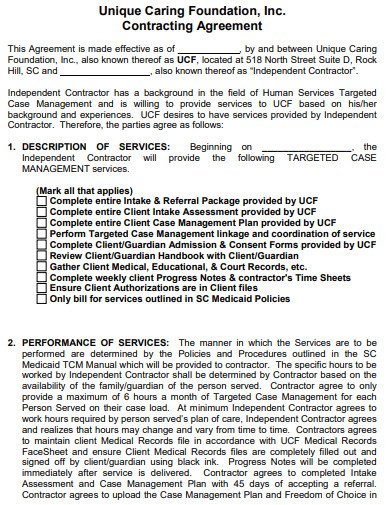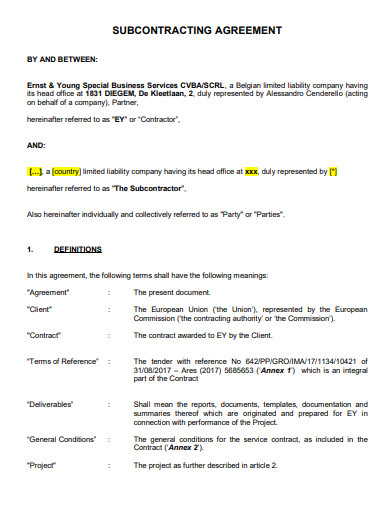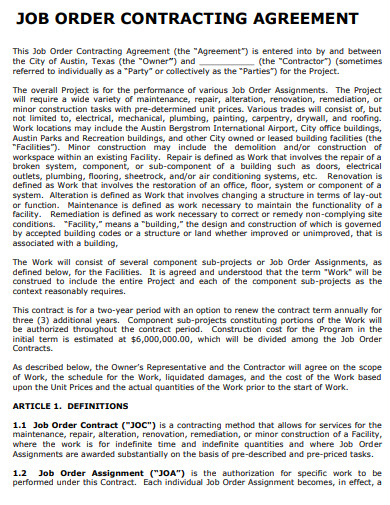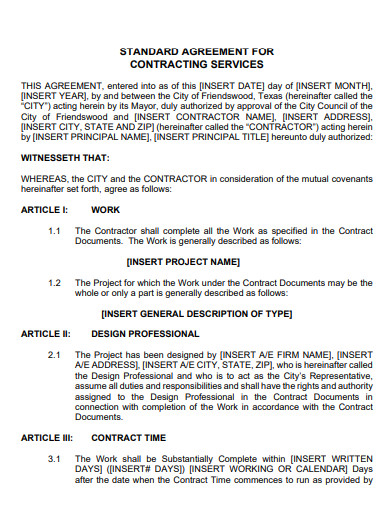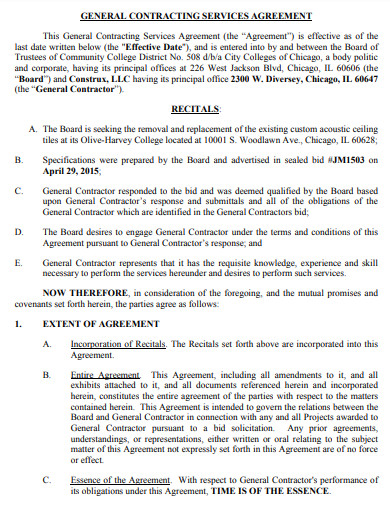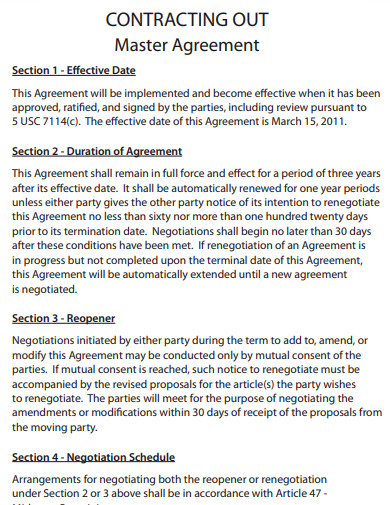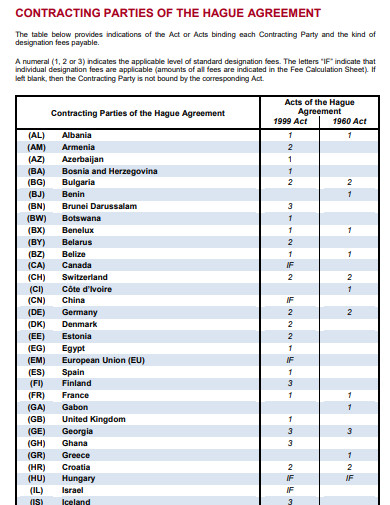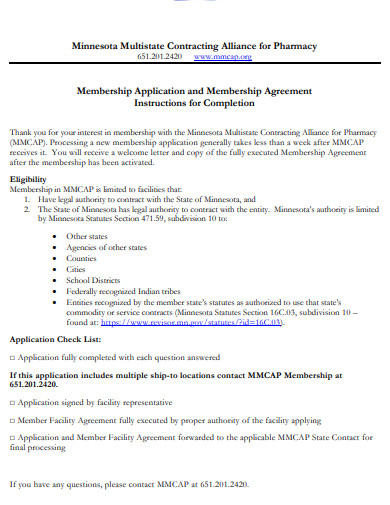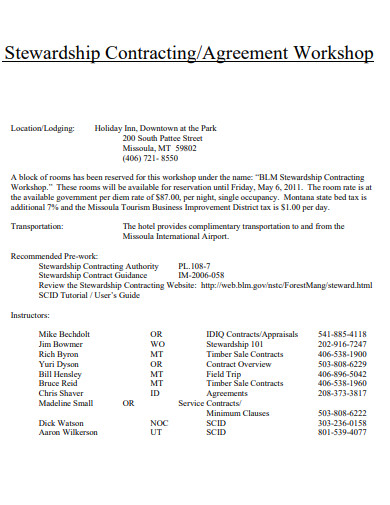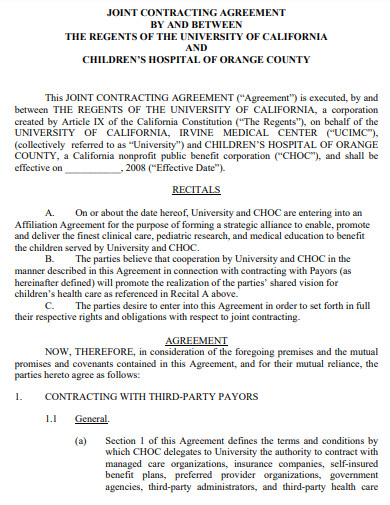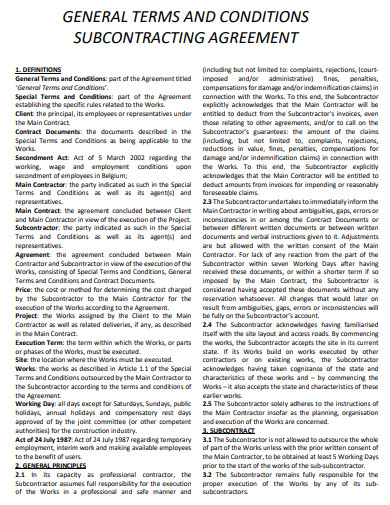The management of contracts is an essential component of running a small business. You can expect many different business partnerships, each of which will have some contractual promise or responsibility. You could be a buyer of products and services as a borrower of money, in rental agreements, or franchise agreements, a seller of products and services as a supplier retailer, wholesaler, or independent contractor, or you could have a partnership agreement with another company as a joint venture partner, consortium member, or partner in a partnership. It is critical to manage both your commercial connections and your contractual obligations effectively.
10+ Contracting Agreement Samples
1. Contracting Agreement
2. Subcontracting Agreement
3. Job Order Contracting Agreement
4. Contracting Services Agreement
5. General Contracting Services Agreement
6. Contracting Out Master Agreement
7. Contracting Parties Agreement
8. Contracting Membership Agreement
9. Contracting Agreement Workshop
10. Joint Contracting Agreement
11. Terms of Contracting Agreement
What Is Contracting Agreement?
A legally binding and enforceable agreement between two parties is known as a contracting agreement. The terms and conditions of the contract will stipulate that the parties must perform specific actions or abstain from performing certain actions. When each of these precise conditions is met, a contractual agreement is considered to be legally binding.
How To Make a Contracting Agreement?
Contracts may be either verbal (spoken) or written or combine the two forms. Writing is required for certain kinds of contracts, including purchasing or selling real estate and financial arrangements. A standard form agreement or a letter confirming the agreement can be considered examples of written contracts. You can follow the steps below to get started with your writing.
Step 1- Obligation and Performance
The contract needs to provide detailed information about the agreement and the obligations and conditions necessary for each side. Performance denotes how each party is to fulfill their individual requirements and responsibilities.
Step 2- Payment and Breach of Contract
There are a few different ways that payments can be made, including using money, commodities, or services. If any party breaches the contract, there should be consequences. The arbitration clause and the force majeure clause are two types of provisions that are frequently included in contracts but are not obligatory in any circumstance.
Step 3- Contact Information
For a written contract to be legally enforceable, it must explicitly identify who is legally obligated by the agreement. To put it another way, you will need to have contact information for all parties engaged in the transaction. Every contract should include the client’s and the contractor’s or business owner’s contact information, as well as the legal name of the business, the primary point of contact, the physical address, the billing address, and any other relevant information.
Step 4- Project Terms and Scope
As was stated previously, contracts are all about detailing the specifics of your agreement in as much detail as possible. It is crucial to be as precise as possible about what you will be hired to do, how you will do it, and what the expectations are on both sides of the hiring relationship.
Do you have the ability to make contracts on your own?
The answer to the question of whether you need legal representation in order to form a contract is that you do not. A contract can be drafted by anyone on their own, as long as the components mentioned above are present, and both parties are aware of their legal obligations.
What are the seven components that make up a contract?
It is necessary for a contract to contain certain components in order for it to be effective and acknowledged by the common law. These components are an offer, an acceptance, consideration, the aim to form legal relations, authority and ability, and certainty.
What are the four most fundamental aspects of a contract?
Mutual consent, which can be demonstrated by a legitimate offer and acceptance, suitable consideration, legal ability, and legality, are the fundamental factors that must be present for the agreement to be considered a legally enforceable contract.
Establishing clear expectations with your client, elaborating on the specifics of the project, and ensuring that you will be compensated for your efforts all need contracting agreements. And now that you understand how to make contracts (and how to enforce them), you are equipped with the knowledge you need to safeguard your legal rights as a business owner.
Related Posts
FREE 10+ Trial Agreement Samples In MS Word | Google Docs | Apple Pages | PDF
FREE 9+ Shop Rental Agreement Samples [ Commercial, Lease, Tenancy ]
FREE 10+ Charter Agreement Samples In MS Word | Google Docs | Apple Pages | PDF
FREE 10+ Mentoring Agreement Samples In MS Word | Apple Pages | PDF
FREE 10+ Partner Agreement Samples In MS Word | Google Docs | Apple Pages | PDF
FREE 10+ Individual Agreement Samples In MS Word | Google Docs | Apple Pages | PDF
FREE 10+ Strategic Agreement Samples In MS Word | Google Docs | Apple Pages | PDF
FREE 10+ Equity Agreement Samples In MS Word | Google Docs | Apple Pages | PDF
FREE 10+ Producer Agreement Samples in MS Word | Apple Pages | PDF
FREE 10+ Grant Agreement Samples In MS Word | Apple Pages | PDF
FREE 8+ Meeting Agreement Samples in MS Word | Google Docs | Apple Pages | PDF
FREE 10+ Community Agreement Samples In MS Word | Google Docs | PDF
FREE 8+ Real Estate Option Agreement Samples in MS Word | PDF
FREE 10+ Call Option Agreement Samples In MS Word | PDF
FREE 10+ Advertising Agreement Samples In MS Word | Google Docs | Apple Pages | PDF

